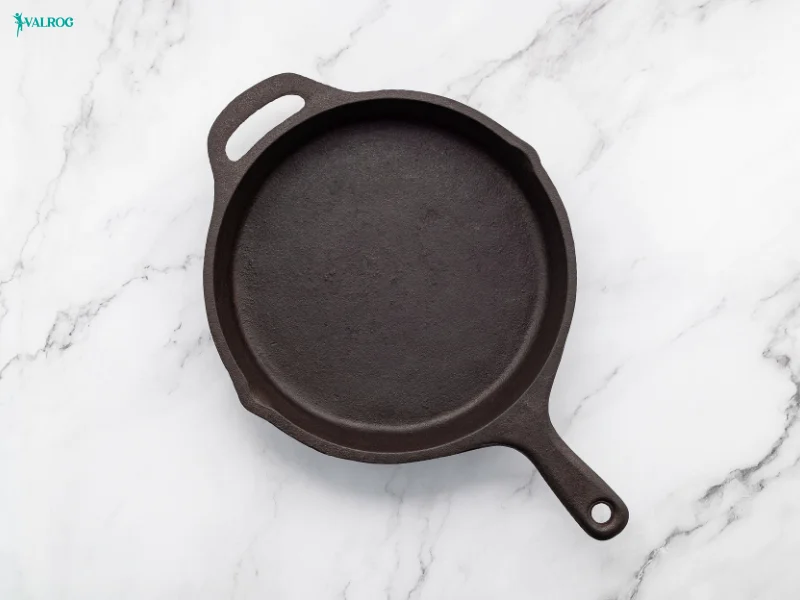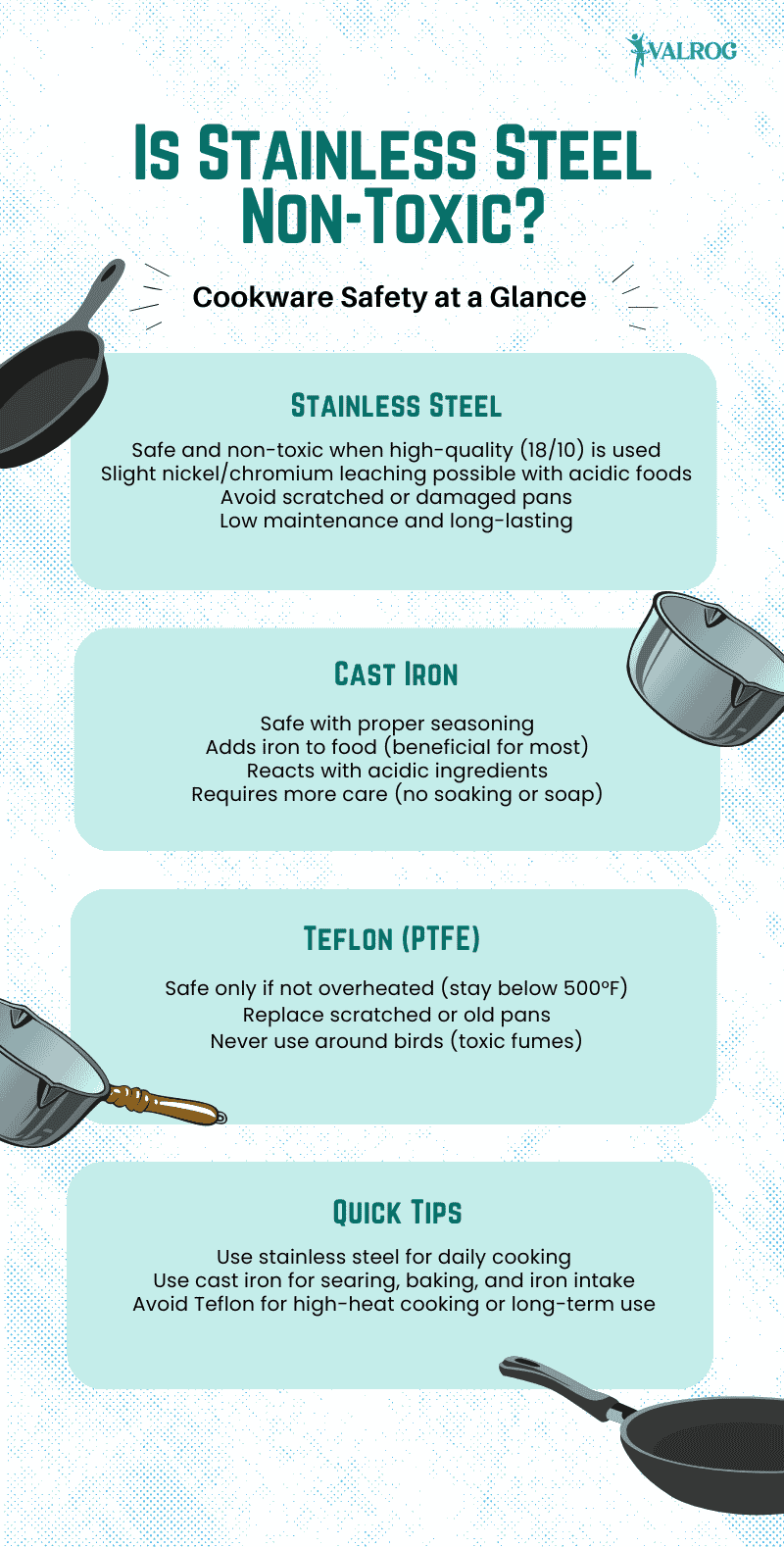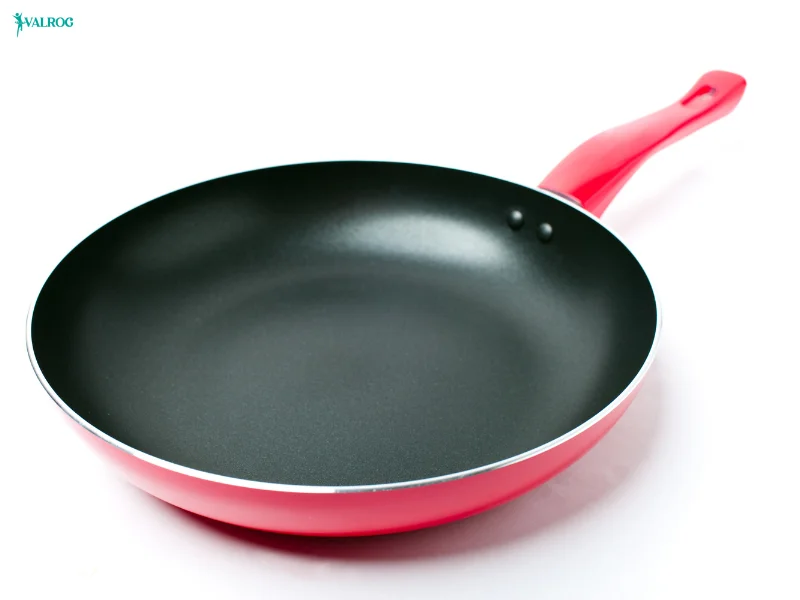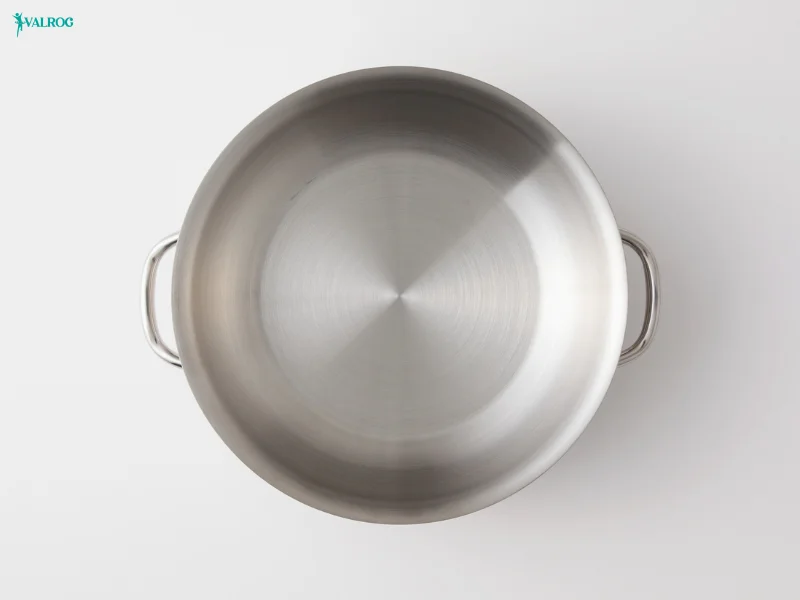“The kitchen is the heart of the home. What you cook with matters as much as what you cook.”
It does not matter what you are cooking, an omelet or stewing some venison, your choice of cookware does matter more than function, it can impact your health. One of the questions that many home cooks would require to know to date is Is stainless steel non toxic? Is cast iron safe for cooking? And is Teflon still safe? Let us dig deep by comparing these two renowned materials and enable you to settle on the safest material to use in your kitchen.
Stainless Steel: Modern Kitchen Staple
Good reasons abound for stainless steel pans to decorate professional kitchens and domestic ones. They have great visual appeal, are nonreactive, strong, and adaptable. How safe are they, though?
What You Need to Know About Stainless Steel Safety
In order to determine the concern regarding the safety of stainless steel cookware, one should have knowledge of the material composition of this cookware. Stainless steel is a hard metal formed out of iron but strengthened by chromium (generally 18 percent) and nickel (generally 8-10 percent) to avoid rusting and corroding.
- Is stainless steel non toxic? Yes. With its correct use, stainless steel is harmless and non-toxic.
- Is stainless steel safe to cook with? Generally, yes. Slightly increased leaching of nickel and chromium may be found with acidic foods (such as tomato sauce), particularly in new pans or in damaged cookware. This, however, is minimal.
- Are stainless steel cookware safe for daily use? Yes, as long as you employ high-quality cookware and treat it in a decent way.

Research Analysis: A published article in the Journal of Agricultural and Food Chemistry reported that, during hours of cooking, the amount of leaching in stainless steel remained far below the health level of risk.
Tip: Tip: To reduce leaching, high-quality 18/10 stainless steel pots and pans should be used, prolonged cooking of strongly acidic foodstuffs should be avoided and no harsh abrasives should be used to damage the surface.
What happens when stainless steel is scratched? Is stainless steel non toxic? Scratches that are light are not dangerous, whereas deep gouges may lead to increased leaching of the metal. The advice in such situations is to get them replaced.
Read more Nutrition Blogs.
Cast Iron: Modern Appeal on Traditional Cookware
Cooking with a well-seasoned cast iron skillet is a delight. Many people, though, wonder if cooking on cast iron is safe.
Cast Iron Safety: Factors Consider
Cast iron is fundamentally pure iron with a little bit of carbon. It is sought for its rustic appeal, heat retention, and flavor development.
- Is cast iron safe for cooking? Yes, with care.
- Cast Iron Skillet Health Effects: Cooking with cast iron can actually add a small amount of dietary iron to your food, beneficial for many, but potentially concerning for those with hemochromatosis (a condition of iron overload).

Caretip: Seasoning regularly (oil baked on the surface) helps avoid rust and leaves the seminonstick surface. Cast iron must never be allowed to soak or scrubbed with harsh soap, which ruins the seasoning.
Imagine that you are preparing cornbread using such a historic piece of cast iron cookware that you actually inherited. It not only crisps beautifully, but that same pan can be passed along through generations, a legacy of taste and its history.
Is stainless steel pans safe? As a matter of fact, stainless steel is superb in browning and searing since it does not wear out under high temperatures.
Teflon (PTFE): Convenience With Caution
Non-stick cookware coated with Teflon (PTFE) makes for easy cleanup. But is Teflon safe?
Teflon: The Facts
Is Teflon safe? Post 2013 made Teflon pans are PFOA free, and they are considered to be safer. However, the most dangerous impact of the overheating (above 500°F) is the fact that the PTFE covering is ruined, and poisonous vapours are released.
Note: Overheated Teflon pans have been reported to cause the occurrence of the so-called Teflon flu (polymer fume fever) on extremely rare occasions. Birds, in particular, are very sensitive; you should never apply Teflon anywhere crops are kept.
Usage tips:
- Never use high temperatures when cooking.
- Use pans rather than replace worn-out or scratched Teflon pans.
In short, Teflon will be safe provided you use it safely. However, stainless steel or cast iron have a more permanent, durable, and sleeping surface.

Cast Iron vs. Stainless Steel: Which Is Better?
| Feature | Cast Iron | Stainless Steel |
| Heat Retention | Excellent | Good |
| Reactivity with Acidic Foods | High (can cause a metallic taste) | Low |
| Maintenance | Needs seasoning | Low maintenance |
| Lifespan | Decades, even generations | Decades |
| Adds Iron to Food | Yes | No |
| Weight | Heavy | Lighter |
| Is stainless cookware safe? | Yes | Yes |
Which One Should You Pick?
If you want a multipurpose and maintenance material, stainless steel is the best. However, cast iron is a good choice in case you prefer to cook the traditional way and you are not against cleaning your cooking gear.
To saute, sear, and cook acidic foods, many cooks prefer using stainless steel and cast iron to bake, fry, and make stews.
Is stainless steel non toxic in everyday use? In fact, most chefs prefer using it in their daily work because it is very long-lasting and safe.
Are Stainless Steel Pans Safe?
- Is stainless steel pan safe? Yes. Use the best 18/10 steel.
- Is stainless steel non toxic? Sure, in their proper use.
- Is stainless steel food safe? Absolutely.
In the comparison of cast iron and stainless steel, the former both have been found to be very safe and effective in performance when handled with care.
Are stainless cookware safe? It is true, and there is a reason why it is a favorite in most professional kitchens.
Are stainless steel cookware safe for nickel-sensitive persons? It depends. The severely allergic nickel people will tend to choose the less nickel-containing or zero nickel stainless steel (like 400 series stainless steel).

Conclusion: Cook With Confidence
Is stainless steel non toxic? Whether to use stainless steel, cast iron, or Teflon all depends on the advantages and weaknesses of the mentioned items.
Cooking is a love affair- your cooking equipment should compliment that, not make you get infected.
Cast iron and stainless steel give the best compromise of performance, durability, and safety in the majority of cooks. As much as Teflon may be convenient, caution should be observed.
Prepare with self-confidence and with care as your kitchen needs the best.
Visit Valrog for more health-related information.
